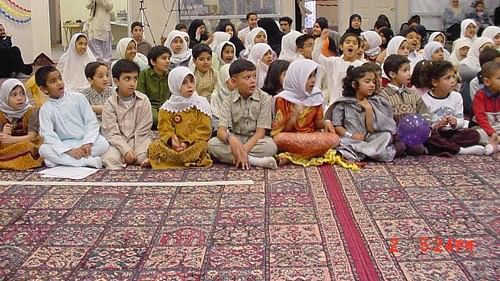
A madrassa class. Representative image.
DH File Photo
New Delhi: The Supreme Court on Monday stayed the operation of the communications issued by child rights body NCPCR asking states to shift students of unrecognised madrasas to government schools in view of alleged violation of the Right to Education Act over there.
A bench of Chief Justice of India and also Justices Justices J B Pardiwala and Manoj Misra restrained the Centre and the State from acting on the letters issued by the NCPCR.
Senior advocate Indira Jaising, appearing for Jamiat Ulema-i-Hind, contended that the communications of the National Commission for Protection of Child Rights and consequential actions of some of states, including the UP, and Tripura needed to be stayed.
The Muslim organisation has challenged the action of UP and Tripura governments directing that students of unrecognised madrassas should be shifted to government schools.
On June 7, 2024, the NCPCR wrote to the State of Uttar Pradesh directing that that the recognition of Madrassas not complying with the RTE (Right to Education) Act be withdrawn.
In its order, the bench said, "The communications of June 07, 2024 and June 25 of NCPCR and the consequential communications of June 26 of the Chief Secretary of Uttar Pradesh and communication of July 10, issued by the Secretary, Department of Education & Literacy, Ministry of Education, Government of India and communication of August 28, issued by the Government of Tripura shall not be acted upon."
The court granted the petitioner liberty to implead all states/UTs as parties in the petition.
The apex court allowed the Muslim organisation to make states, other than Uttar Pradesh and Tripura as parties to its petition. The petition was filed through advocate Fuzail Ahmed Ayyubi.
The petitioner moved the apex court claiming these decisions were an infringement of the right of religious minorities to impart education as per Article 30 of the Constitution.
A separate petition is pending adjudication before the Supreme Court challenging the Allahabad High Court's March 22, 2024 decision to strike down the Madrasas Act, 2004.
On April 5, 2024, the Supreme Court has stayed the Allahabad High Court's order.
